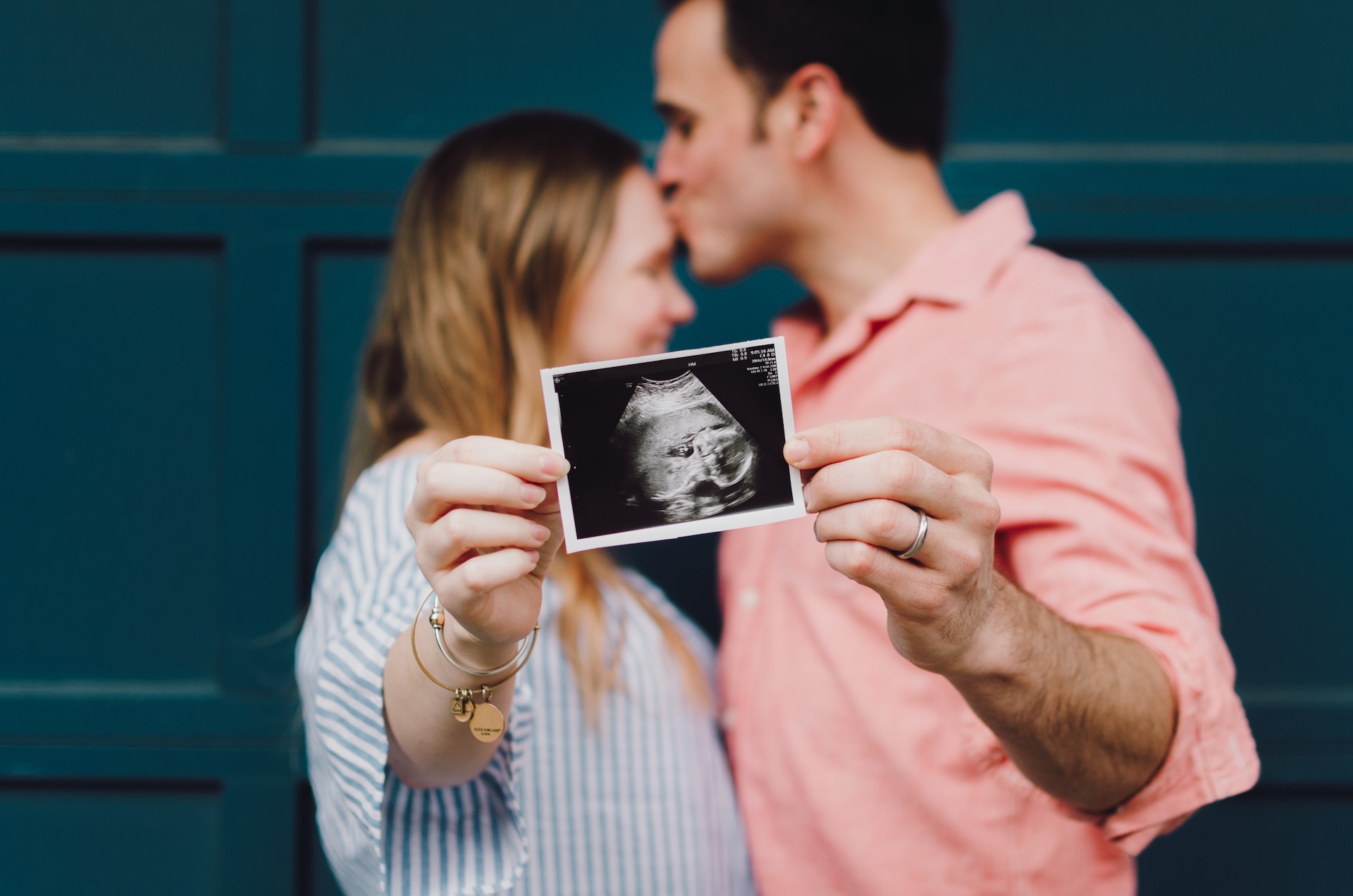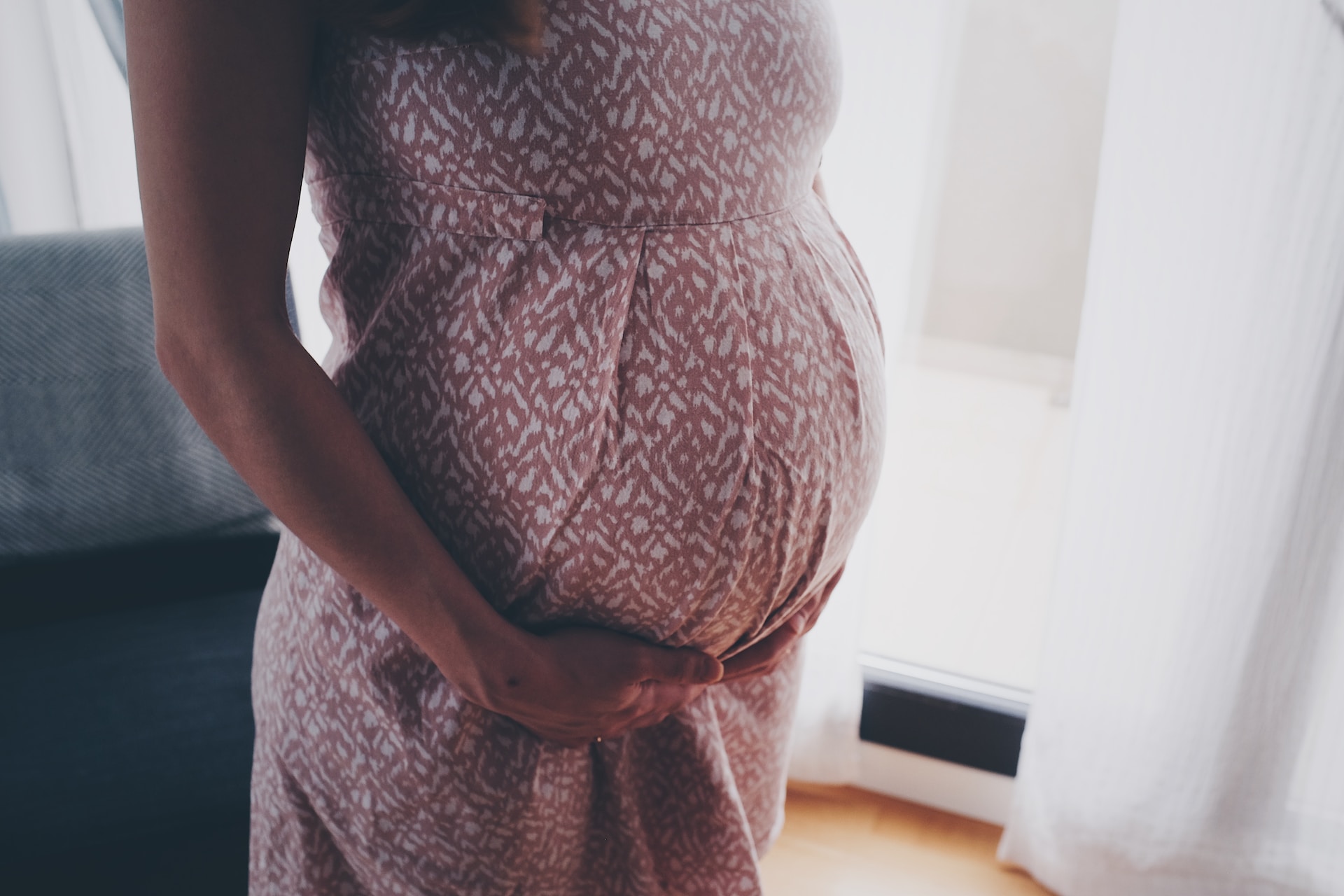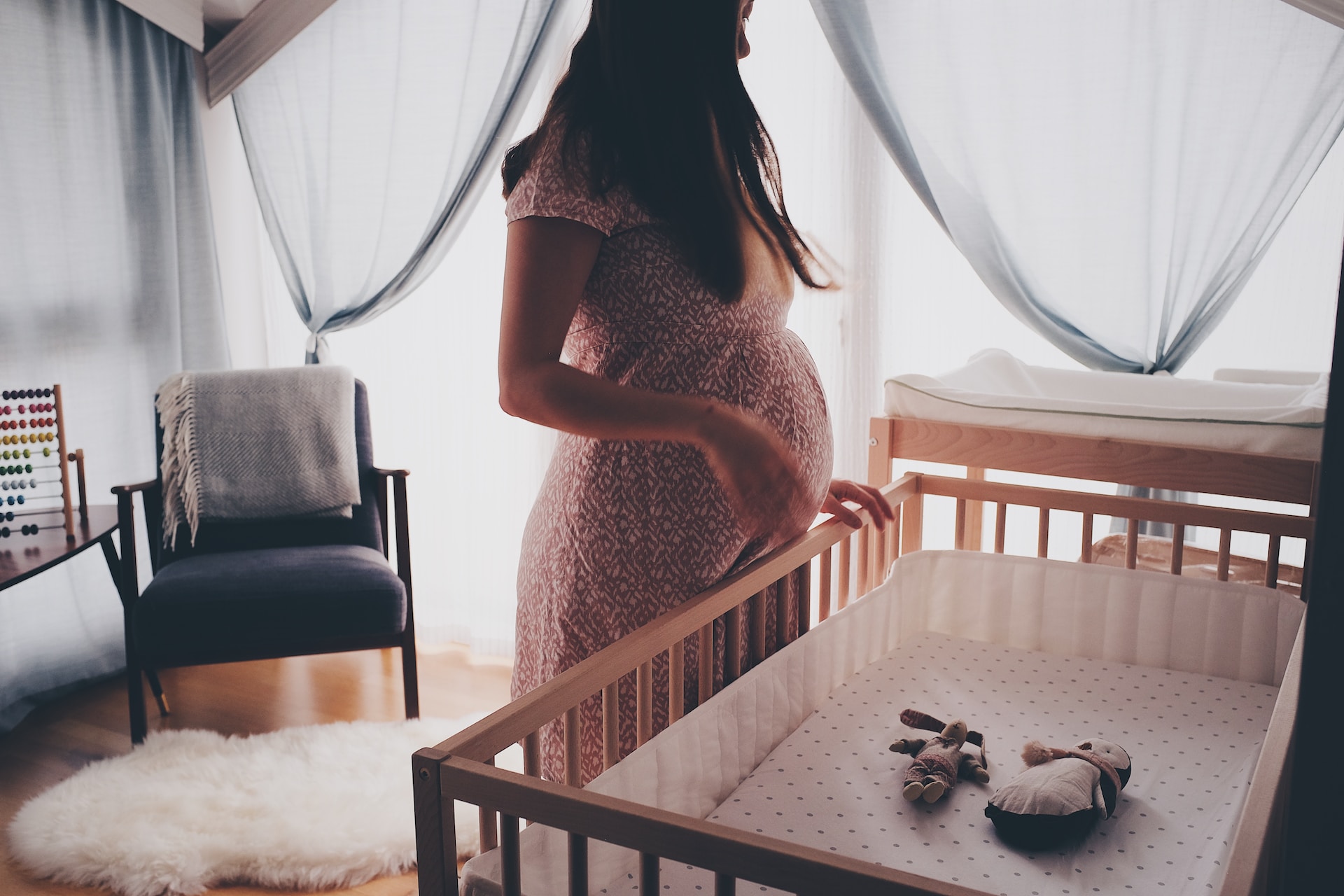Pregnancy and the birth of your child is an exciting but overwhelming time in any mother's life. Sometimes, the best way to counter fear and anxiety is with knowledge! So to give you a little more insider info on what goes on during pregnancy, here are some interesting and important pregnancy facts that you probably haven't heard of before.
1. Fetal Cells Can Repair Maternal Tissues
During pregnancy, fetal cells can migrate into the mother's body and may contribute to repairing damaged maternal tissues. This unique phenomenon demonstrates a remarkable biological interaction between mother and child.
 Photo by Camylla Battani on Unsplash
Photo by Camylla Battani on Unsplash
2. Babies Can Cry in the Womb
Research has suggested that fetuses can exhibit behaviors similar to crying in the womb. This is observed in the later stages of pregnancy and is considered a vital part of developing the breathing muscles.
 Photo by Sylwia Bartyzel on Unsplash
Photo by Sylwia Bartyzel on Unsplash
3. Enhanced Sense of Smell
Many pregnant women experience a heightened sense of smell. This is believed to be an evolutionary adaptation to help expectant mothers avoid foods that are unsuitable for the fetus.
 Photo by Elly Johnson on Unsplash
Photo by Elly Johnson on Unsplash
4. Pregnancy Alters Brain Structure
Pregnancy can lead to long-lasting changes in the structure of a woman's brain. These changes are thought to prepare the mother for the challenges of nurturing a newborn.
 Photo by John Looy on Unsplash
Photo by John Looy on Unsplash
5. Fetal Cells Influence Maternal Health Post-Delivery
Fetal cells can remain in the mother's body for decades after childbirth and may influence her health positively or negatively, affecting her risk of certain diseases.
 Photo by Alicia Petresc on Unsplash
Photo by Alicia Petresc on Unsplash
6. Increased Blood Volume
During pregnancy, a woman's blood volume can increase by up to 50%. This is necessary to support the growing fetus, but it also puts extra strain on the heart.
 Photo by Juan Encalada on Unsplash
Photo by Juan Encalada on Unsplash
7. Unique Fingerprints
By the end of the first trimester, the fetus develops unique fingerprints, a characteristic that will remain distinct throughout their life.
 Photo by George Prentzas on Unsplash
Photo by George Prentzas on Unsplash
8. Dreams Can Change
Many pregnant women report a change in their dreaming patterns, with more vivid and frequent dreams. This is likely due to hormonal changes and the psychological impact of impending motherhood.
 Photo by bruce mars on Unsplash
Photo by bruce mars on Unsplash
9. Hormones Can Affect Vision
Pregnancy hormones can alter the shape and thickness of the cornea in the eyes, sometimes affecting vision clarity. These changes are usually temporary and resolve after childbirth.
 Photo by David Travis on Unsplash
Photo by David Travis on Unsplash
10. Fetal Taste Development
The fetus can taste flavors from the mother's diet through the amniotic fluid, which might influence taste preferences after birth.
11. Increase in Shoe Size
Many women experience an increase in shoe size during pregnancy, often due to fluid retention and the flattening of the feet under extra weight.
 Photo by Camila Damásio on Unsplash
Photo by Camila Damásio on Unsplash
12. "Pregnancy Glow" Is Real
The pregnancy glow is a real phenomenon, primarily due to increased blood flow and higher oil gland activity, giving the skin a brighter appearance.
 Photo by Lucija Ros on Unsplash
Photo by Lucija Ros on Unsplash
13. Lactation Can Be Induced Without Pregnancy
It's possible to induce lactation without pregnancy or childbirth, through a combination of hormonal therapy and physical stimulation.
 Photo by an_vision on Unsplash
Photo by an_vision on Unsplash
14. Baby's First Stool Is Sterile
The first stool passed by a newborn, known as meconium, is sterile and free of bacteria. It's composed of materials ingested during the time in the womb.
 Photo by Garrett Jackson on Unsplash
Photo by Garrett Jackson on Unsplash
15. Surges in Relaxin Hormone
During pregnancy, the body produces high levels of the hormone relaxin, which loosens ligaments and joints in preparation for childbirth. This can lead to increased flexibility but also potential joint discomfort.
 Photo by Zach Betten on Unsplash
Photo by Zach Betten on Unsplash
16. Syncing Heartbeats
The mother's and baby's heartbeats can sometimes sync up during pregnancy. This remarkable phenomenon demonstrates a deep physiological connection between mother and child.
 Photo by Jonathan Borba on Unsplash
Photo by Jonathan Borba on Unsplash
17. Pregnancy Can Affect Memory
Some women experience memory changes during pregnancy, often referred to as "pregnancy brain." This is thought to be caused by hormonal changes and the stress of impending motherhood.
 Photo by Keren Fedida on Unsplash
Photo by Keren Fedida on Unsplash
18. Increased Respiratory Rate
A pregnant woman's respiratory rate often increases to provide more oxygen to the growing fetus. This is a normal adaptation to meet the increased metabolic demands.
 Photo by Eli DeFaria on Unsplash
Photo by Eli DeFaria on Unsplash
19. Fetus Sends Stem Cells to Repair Damaged Organs
Fetal stem cells can migrate to maternal organs and contribute to repairing damaged tissues, demonstrating a unique biological cooperation.
 Photo by Anastasiia Chepinska on Unsplash
Photo by Anastasiia Chepinska on Unsplash
20. Change in Hair Texture
Many women notice a change in their hair texture during pregnancy. Hormonal shifts can make hair grow thicker, curlier, or sometimes even change color slightly.
 Photo by averie woodard on Unsplash
Photo by averie woodard on Unsplash
21. Babies Can Hear in the Womb
From about 18 weeks, fetuses can start to hear sounds from outside the womb. The mother's voice is one of the first sounds a baby can discern.
 Photo by Kelly Sikkema on Unsplash
Photo by Kelly Sikkema on Unsplash
22. Enhanced Creativity
Some women report feeling more creative during pregnancy, possibly due to a combination of hormonal changes and psychological factors.
 Photo by Tim Mossholder on Unsplash
Photo by Tim Mossholder on Unsplash
23. Skin Tags Are Common
Pregnancy can lead to the development of small skin tags due to hormonal changes and increased blood supply to the skin.
 Photo by Ömürden Cengiz on Unsplash
Photo by Ömürden Cengiz on Unsplash
24. Increased Risk of Carpal Tunnel Syndrome
Many pregnant women are at a higher risk for carpal tunnel syndrome. This is due to fluid retention that increases pressure in the carpal tunnel of the wrist, affecting nerve function.
 Photo by Andrew Moca on Unsplash
Photo by Andrew Moca on Unsplash
25. Belly Button Transformation
During pregnancy, the expanding uterus can push the belly button outward, turning an innie into an outie. It usually returns to its original state after childbirth.
 Photo by Kelly Sikkema on Unsplash
Photo by Kelly Sikkema on Unsplash
26. Unique Maternal Immune Tolerance
A pregnant woman's immune system adapts to not reject the fetus, which is genetically different from her, demonstrating a unique form of immune tolerance.
 Photo by Joey Thompson on Unsplash
Photo by Joey Thompson on Unsplash
27. Sense of Taste Can Change
Some women experience changes in their taste preferences during pregnancy, often developing cravings or aversions to certain foods.
 Photo by Helena Lopes on Unsplash
Photo by Helena Lopes on Unsplash
28. Gum Sensitivity Increases
Increased blood flow and hormonal changes can lead to swollen, sensitive gums and heightened risk of gum disease during pregnancy.
 Photo by engin akyurt on Unsplash
Photo by engin akyurt on Unsplash
29. Fetal Movements Can Indicate Health
The pattern and frequency of fetal movements can be an indicator of the baby's health. Significant changes in movement patterns should be monitored.
 Photo by Ömürden Cengiz on Unsplash
Photo by Ömürden Cengiz on Unsplash
30. "Linea Nigra" Development
Many pregnant women develop a dark line on the abdomen, known as the "linea nigra." This is due to hormonal changes affecting skin pigmentation.









